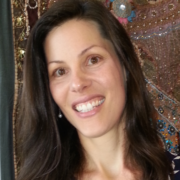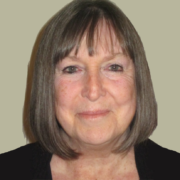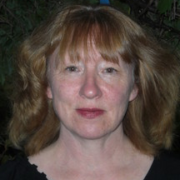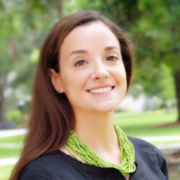Early 2017 conference

Celebrating breastfeeding
March - May, 2017
Our 10th online breastfeeding conference
More Rock Stars of Lactation™ presented at our tenth conference, Celebrating breastfeeding. This was held online during March – May 2017 and had participants from 55 countries. The conference is now closed and the presentations are no longer available. You can still read the topic introductions and more background about the speakers. Thank you for your interest!

Birth consequences: the impact of fentanyl epidurals during the first hour after birth
Kajsa Brimdyr, PhD, CLC - Read moreBirth consequences: the impact of fentanyl epidurals during the first hour after birth
Kajsa Brimdyr, PhD, CLC
Dr Kajsa Brimdyr is an experienced ethnographer who has worked with health care, municipal and technological businesses, using ethnography to understand and appreciate the work practice of professions, work-flows and services in order to help improve practice. She has conducted research in the United States, Sweden, Latvia, Egypt and Iceland. Her current research involves using video ethnography and interaction analysis to change practice in hospital settings to improve continuous skin-to-skin for the first hour after cesarean and vaginal births in Egypt and the United States. She, along with Ann-Marie Widstrom and Kristin Svensson, are the producers of the DVD Skin to Skin in the First Hour after Birth: Practical Advice for Staff after Vaginal and Cesarean Birth. Her newest DVD, the award winning The Magical Hour: Holding Your Baby for the First Hour After Birth is aimed at parents. Dr Brimdyr is an advisor and faculty member for the BS in Maternal Child Health: Lactation Consulting at Union Institute and University.
Birth consequences: the impact of fentanyl epidurals during the first hour after birth
Intrapartum drugs, including fentanyl administered via epidural, have been previously studied in relation to neonatal outcomes, especially breastfeeding, with conflicting results. We examined the normal neonatal behavior of suckling within the first hour after a vaginal birth while in skin-to-skin contact with mother in relation to these commonly used drugs. Suckling in the first hour after birth has been shown in other studies to increase desirable breastfeeding outcomes. Method: Prospective comparative design. Sixty-three low-risk mothers self-selected to labor with intrapartum analgesia/anesthesia or not. Video recordings of infants during the first hour after birth while being held skin-to-skin with their mother were coded and analyzed to ascertain whether or not they achieved Stage 8 (suckling) of Widström’s 9 Stages of neonatal behavior during the first hour after birth. Results: A strong inverse correlation was found between the amount and duration of exposure to epidural fentanyl against the likelihood of achieving suckling during the first hour after a vaginal birth. Conclusions: Results suggest that intrapartum exposure to the drug fentanyl significantly decreased the likelihood of the baby suckling while skin to-skin with its mother during the first hour after birth. (new study in press, BIRTH 2015)
This presentation includes video clips illustrating newborn behavior across the spectrum of fentanyl exposure. Although more than 80% of mothers in the United States intend to breastfeed, many have discontinued by 10 days postpartum. This research offers potential insight into why mothers are unable to meet their own breastfeeding goals, and has world wide implications as the use of fentanyl as an epidural anesthetic increases around the world.

Facilitating skin-to-skin contact after caesareans
Jeni Stevens, RN, RM, IBCLC - Read moreFacilitating skin-to-skin contact after caesareans
Jeni Stevens, RN, RM, IBCLC
Jeni Stevens is a PhD candidate from Western Sydney University, Australia. Jeni is a mum of four young men, a Registered Nurse and Midwife and a lactation consultant. Jeni completed an honours research degree in 2010, which focused on the role of a Doula in Australia. She is currently completing her PhD and is a Clinical Midwifery Consultant in Infant Feeding in a Sydney Hospital.
Facilitating skin-to-skin contact after caesareans
This presentation will discuss: What is skin-to-skin contact, what are its benefits and what are the common barriers. It will examine the WHO and UNICEF recommendations in regards to skin-to-skin contact. And also look at maternal reflections of previous Caesarean vs Caesarean with skin-to-skin contact.

Birth weight, bilirubin and blood sugar: what do the numbers mean for normal newborn care?
Jennifer Thomas, MD, MPH, IBCLC, FABM, FAAP - Read moreBirth weight, bilirubin and blood sugar: what do the numbers mean for normal newborn care?
Jennifer Thomas, MD, MPH, IBCLC, FABM, FAAP
Dr Jenny Thomas is a pediatrician and breastfeeding medicine specialist at Lakeshore Medical Clinic in Franklin, Wisconsin, USA and is a Clinical Assistant Professor of Community and Family Medicine and Pediatrics at the Medical College of Wisconsin. She is now serving on the American Academy of Pediatrics (AAP) Section on Breastfeeding Executive Board after spending several years as the Chief of the Chapter Breastfeeding Coordinators. She also serves on the Executive Board of the Wisconsin Chapter of the AAP, and is a founder and the immediate-past Chairperson of the Wisconsin Breastfeeding Coalition. She is the author of Dr Jen’s Guide to Breastfeeding. She has received awards for teaching, advocacy for children, and innovation with in her practice and community. She is one of only a few physicians internationally to be recognized as a Fellow of the Academy of Breastfeeding Medicine (FABM) for her expertise on breastfeeding. Dr Thomas’ interests and research have focused on issues related to the use of social media to support breastfeeding mothers.
Birth weight, bilirubin and blood sugar: what do the numbers mean for normal newborn care?
Blood sugar, bilirubin and birth weight are among the most common reasons babies get supplemented with something other than their mother’s own milk. But without context, they are nothing more than random numbers flying through the air. In this presentation, learn why health care professionals should avoid acting on these numbers without first learning what they mean for each baby in context of their clinical picture.

Understanding and supporting early postpartum maternal health needs
Kristin Tully, PhD - Read moreUnderstanding and supporting early postpartum maternal health needs
Kristin Tully, PhD
Dr Kristin Tully is a Research Associate at the University of North Carolina at Chapel Hill (UNC-CH). Her program of research investigates maternity care, patient-provider communication, breastfeeding experiences, and parent-infant nighttime interactions. Broadly, she interested in understanding and supporting the health needs and parenting practices of new families. Dr Tully is currently Principal Investigator of a North Carolina Translational and Clinical Sciences Improving Human Health Award to design and development of infant side-car bassinets for US postnatal units through the Carolina Global Breastfeeding Institute (CGBI). She is also a co-investigator on a Patient-Centered Outcomes Research Institute engagement award on women’s health in the “4th Trimester” through CGBI and the UNC Center for Maternal and Infant Health. Dr Tully contributes to two National Institute of Health-funded projects on infant sleep development at the Center for Developmental Science at UNC-CH and is a part of the National Action Partnership to Promote Safe Sleep.
Understanding and supporting early postpartum maternal health needs
This presentation will present multi-method research methodologies for understanding women’s health experiences in the first three months postpartum, which we conceptualize as the “4th Trimester.” Alongside these strategies for optimizing knowledge, Dr Tully will describe ongoing improvements in patient-centered care through the examples of infant side-car bassinets for postnatal units and a conversations-based approach to patient-provider interactions. The overall message is that maternal and child health issues intersect and can compound one another, so more readily accessible and integrated care is needed. By centering the most marginalized groups, we can get closer to effectively enabling all new mothers and their families to have the care that they want and need.

Hospital breastfeeding and the need to include paediatrics
Helen Calvert, BA(Hons) - Read moreHospital breastfeeding and the need to include paediatrics
Helen Calvert, BA(Hons)
Helen Calvert is a social media campaigner and parent advocate, who has been running a Facebook group for UK mothers for over 5 years. Her youngest son has a congenital heart defect, and her experiences of breastfeeding him have led her to start the Hospital Breastfeeding campaign, asking for better breastfeeding support on paediatric wards and in children’s hospitals. Helen is involved in a number of maternity, breastfeeding and early years projects, further details of which can be found on her website www.heartmummy.co.uk.
Hospital breastfeeding and the need to include paediatrics
Breastfed babies are on paediatric wards due to concerns over weight gain; breastfed babies are on paediatric wards due to congenital heart defects and other serious conditions; breastfeeding can continue for 2, 3 4 or more years. There will be many breastfed children admitted to paediatric wards. Breastfeeding & breastmilk provide comfort, pain relief, infection control and immune factors to sick children. Breastmilk can be consumed closer to a general anaesthetic than other milks can. Children’s wards and hospitals need to have the same breastfeeding knowledge and focus as postnatal wards and NNUs.

Breastfeeding and medication: why are drugs seen as a barrier to ongoing breastfeeding?
Wendy Jones, PhD, MRPharmS - Read moreBreastfeeding and medication: why are drugs seen as a barrier to ongoing breastfeeding?
Wendy Jones, PhD, MRPharmS
In Dr Wendy Jones employed life she was a community pharmacist and also worked in doctor surgeries supporting cost effective, evidence-based prescribing. She qualified as a pharmacist prescriber specialising in the prevention of Coronary Heart Disease – of which breastfeeding is an extension. Dr Jones left work in 2011 to work on writing my book Breastfeeding and Medication (Routledge 2013), developing information and training material on drugs in breastmilk. She recently completed Breastfeeding for Dads and Grandmas (Praeclarus Press) and Why Mothers Medication Matters (Pinter and Martin).
Dr Jones run a helpline service on the use of medication in breastfeeding mothers for a UK charity called the Breastfeeding Network, responding to healthcare professionals and mothers. She has been a breastfeeding supporter for 29 years ago and is passionate that breastfeeding should be valued by all and that medication should not be a barrier.
Dr Jones has three daughters, all breastfed who are as passionate about breastfeeding as she is, and three grandchildren all enthusiastic breastfeeders themselves.
Breastfeeding and medication: why are drugs seen as a barrier to ongoing breastfeeding?
Sharing decision-making is about being honest about the limits of knowledge and not just about healthcare professionals avoiding risk. All too often it seems that mothers are TOLD that they cannot breastfeed whilst taking medication or undergoing a procedure. There seems to be a patriarchal response from some professionals that breastfeeding is of lesser importance and can be interrupted “just in case”. This presentation also looks at some of the barriers to ongoing breastfeeding and how we can develop a discussion and an understanding of the needs of both professionals, mothers and also the babies.

Breastfeeding management and medical ethical issues
Khalid Iqbal, MD, IBCLC - Read moreBreastfeeding management and medical ethical issues
Khalid Iqbal, MD, IBCLC
Dr Khalid Iqbal is basically a clinician, currently working as a Neonatologist and Lactation Consultant in Neonatal Intensive Care Unit, Dubai hospital, Dubai Health Authority, Dubai United Arab Emirates. He has extensive experience in management of neonatal health and infant nutrition issues. He is a Lactation Consultant, BFHI Assessor and BFHI Trainer as well. He is a well-known speaker and had presentations on many topics at international platforms (ILCA, ABM, VELB, IBFAN, WABA) in USA, Germany, Australia, Malaysia, Indonesia, Egypt and Middle East countries.
He is affiliated with many regional and international organisations and contribute significantly in breastfeeding promotional activities and advocacy campaigns. He is a member IBFAN, Code Coordinator UAE Lactation Consultants Society. He is former Research Coordinator, World Alliance for Breastfeeding Action (WABA) Research Task Force, member of Academy of Breastfeeding Medicine (ABM). He is recipient of Regional Award for his Exemplary services for promoting, supporting and protecting breastfeeding in Arab World.
Dr Khalid is the author of many scientific papers either published in international journals or circulated online (recognized by UNICEF) and has written 3 books, Our Children are at Risk, The Basics of Human Lactation and Is it possible to re-establish breastfeeding once stopped?
Breastfeeding management and medical ethical issues
It is a fact that many health care professionals inadvertently undermine breastfeeding. Even a piece of bad advice from a clinician is enough to throw lactation completely off the track. In many cases, the breastfeeding failure is due to medical mismanagement. It must be realized that attitude and advice of health professionals are significant factors in the success or failure of breastfeeding. The consequences of the mismanagement can be serious health problems among infants.
Medical ethics emphasizes that medical professionals should practice medicine with good scientific and technical abilities focusing on reaching a right and good decision. Medical ethics is a system of moral principles that apply value and judgement to the practice of medicine.
We can conclude from many practical examples that a bad advice leading to lactation failure should be labelled as a medical malpractice. All medical professionals must be aware of the proven fact that even decreasing the dose of breastfeeding will increase the risk of morbidity and mortality in infants.

Hands on examination and assessment of the lactating breast
Bryna Sampey, IBCLC - Read moreHands on examination and assessment of the lactating breast
Bryna Sampey, IBCLC
Bryna Sampey became IBCLC-certified in 2010 after a 4500+ hour internship with Sonja Massey, BSN, RN, IBCLC at BabyMoon in Monterey, CA, USA Prior to her certification as an IBCLC and Doula, she worked in Marine Chemistry in the Monterey Bay. Bryna owns a private practice in the Portland, Oregon metro area, offering home-visiting birth and lactation care, postpartum care, and education for parents and professionals. Bryna has specialized in her birth work focus on high-risk and surgical birth and the subsequent lactation issues that can arise from interventive birth. In her lactation work, she has additional areas of expertise in ankyloglossia assessment and recovery for the breastfeeding dyad, working with LGBTQIA+ families, and Rhythmic Movement Training for babies and parents with birth and surgical trauma as well as breastfeeding difficulties. Bryna has worked as an adjunct professor at Birthingway College of Midwifery, teaching students about complex parental situations in lactation, breast assessment and evaluation, hand expression and breast massage. She also teaches parents in prenatal breastfeeding education and newborn care at Oregon Health & Sciences University. When not teaching, working with clients, or learning more about breastfeeding and early parenting care, she can be found at home with her family in the beautiful Pacific Northwest.
Hands on examination and assessment of the lactating breast
This presentation covers how to do a very thorough assessment and evaluation of the lactating breast. This includes: identifying anatomy appropriately, using language to help your client feel comfortable before, during, and after a manual assessment, how to identify and discuss any problems, tips and tools for expert palpation of mammary tissue, and next steps once your assessment is complete. In 60 minutes, you will learn to become warm, inclusive, competent and confident in your hands-on assessment of the breast.

Breastfeeding strategies for tongue-tied babies
Catherine Watson Genna, BS, IBCLC - Read moreBreastfeeding strategies for tongue-tied babies
Catherine Watson Genna, BS, IBCLC
Catherine Watson Genna is an International Board Certified Lactation Consultant in private practice in New York City. Certified in 1992, Catherine is particularly interested in helping moms and babies breastfeed when they have medical challenges and is an active clinical mentor. She speaks to healthcare professionals around the world on assisting breastfeeding babies with anatomical, genetic or neurological problems. Her presentations and her writing are enriched by her clinical photographs and videos. Catherine collaborates with Columbia University and Tel Aviv University Departments of Biomedical Engineering on research projects investigating the biomechanics of the lactating nipple and various aspects of sucking and swallowing in breastfeeding infants. She is the author of Selecting and Using Breastfeeding Tools: Improving Care and Outcomes (Hale 2009, Praeclarus Press 2016) and Supporting Sucking Skills in Breastfeeding Infants (Jones and Bartlett Publishers 2008, 2013,2017) as well as professional journal articles and chapters in the Core Curriculum for Lactation Consultant Practice and Breastfeeding and Human Lactation. In addition to serving as Associate Editor of the United States Lactation Consultant Association’s official journal Clinical Lactation, Catherine is still an active La Leche League Leader and runs a bi-monthly toddler meeting in Queens.
Breastfeeding strategies for tongue-tied babies
How do we help infants to breastfeed when they have a mild to moderate tongue-tie? This presentation focuses on the management of breastfeeding in tongue-tied infants. Includes positioning and latch strategies, assessment of breastfeeding, addressing problems with milk transfer and coordination of swallowing and breathing, and exercises that might help improve sucking problems.

So “big” and still breastfed?
Alenka Benedik, IBCLC - Read moreSo “big” and still breastfed?
Alenka Benedik, IBCLC
Alenka Benedik is a mother of three breastfed children, an international board certified lactation consultant (IBCLC), an accredited La Leche League Leader, a translator and a doula. She has been helping mothers and babies to breastfeed since 2006. Her mission is to change the world for the better. Her vision is breastfeeding as a socially accepted norm. In addition to her job as a freelance translator, specializing in quality in healthcare and automotive industry, she is the first and only Slovenian IBCLC in private practice. Alenka leads birth preparation and breastfeeding support classes, and a La Leche League Café group. She enjoys writing articles on breastfeeding and parenting, spending time with her children, travelling, meeting new people, hiking and taking pictures.
So “big” and still breastfed?
This presentation is based on practical experience in counseling nursing mothers regarding weaning, and acceptable duration of breastfeeding, with the purpose of exploring the expert evidence regarding the duration of breastfeeding, the value of human milk, and the potential harmfulness of breastfeeding for the mother or child. In many industrialized countries, breastfeeding after a certain age is considered less acceptable, breast milk is assumed to have no value, and breastfeeding in public is not always acceptable. Lactation specialists and other health professionals play an important role in supporting nursing mothers and raising public awareness on the risks of early weaning on child and maternal health.

Cultural challenges of breastfeeding and sleep
Cecilia Tomori, PhD, MA - Read moreCultural challenges of breastfeeding and sleep
Cecilia Tomori, PhD, MA
Dr Cecilia Tomori is a Hungarian American anthropologist, with postdoctoral training in public health. Dr Tomori combines anthropological and public health approaches to explore lived experience across cultures in order to improve health and social inequalities. Dr Tomori’s recent book, Nighttime Breastfeeding: An American Cultural Dilemma (Berghahn Books, 2014), investigates cultural controversies surrounding breastfeeding and infant sleep using anthropological, historical, and feminist perspectives. She is currently working on a new interdisciplinary edited volume with Drs. Aunchalee Palmquist and Elizabeth Quinn on anthropological approaches to breastfeeding across biological, sociocultural, and archeological anthropology (Routledge, forthcoming). Dr Tomori has published and presented her research in numerous journals and conferences for a variety of audiences. She is currently a Research Associate at the Johns Hopkins Bloomberg School of Public Health.
Cultural challenges of breastfeeding and sleep
Why do so many new parents struggle with nighttime breastfeeding and sleep? The presentation will address this key question and examine nighttime challenges in a broader sociocultural context. It will draw on Cecilia’s ethnographic research in the USA as well as other research to show that parents who intend to breastfeed frequently find learning how to breastfeed and getting some rest challenging. Moreover, in negotiating nighttime breastfeeding they find themselves at odds with medical advice and cultural expectations to prevent babies from falling asleep at the breast, avoid bringing them into their bed, limit nighttime feedings as quickly as possible, and train babies to “sleep through the night”. It will show that the tensions surrounding nighttime breastfeeding and sleep are relatively recent in history, and reflect particular cultural concerns. Finally, I will outline paths towards better nighttime guidance and support for families that is informed by the evolutionary origins of and cross-cultural approaches to nighttime infant care.

Using the evidence to support breastfeeding in the face of HIV
Pamela Morrison, IBCLC - Read moreUsing the evidence to support breastfeeding in the face of HIV
Pamela Morrison, IBCLC
Pamela Morrison has been speaking and writing on behalf of breastfeeding in the context of HIV since 1995. Having certified in 1990 as the first IBCLC in Zimbabwe, a country with extremely high HIV-prevalence, she worked in private practice and served as a member of the Zimbabwe National Multi-sectoral Breastfeeding Committee, as a BFHI trainer and assessor, and assisted with development of national Code legislation and HIV and breastfeeding policy. She emigrated to Australia in 2003 and subsequently to England in 2005. She served as Co-Coordinator of the WABA Task Forces on Human Rights from 2001 to 2002 and on Breastfeeding and HIV from 2005 to 2009. She authored the WABA 2012 publication, International Policy on HIV and Breastfeeding: a Comprehensive Resource, and the 2015-16 Update (currently awaiting publication).
Using the evidence to support breastfeeding in the face of HIV
The discovery in 1985 that a lethal virus could be transmitted through mothers’ milk led to fear about the wisdom of universal promotion of breastfeeding. What research influenced global HIV and infant feeding policy and how was the risk characterized? In Europe and America, where formula feeding was seen as safe, breastfeeding by HIV-positive mothers was banned outright. But global promotion of maternal choice to formula-feed gradually faltered in the face of growing evidence of unacceptably high rates of morbidity and mortality in developing countries. Thirty years later, today’s antiretroviral regimes greatly reduce the risk of vertical transmission of HIV and have been described as transformational. Breastfeeding for all is once again promoted and such a turnaround profoundly affects the information we can share with our HIV-positive clients.

Climate change and the sustainability of breastfeeding
Carol Bartle, RN, RM, IBCLC, PGDip (Child Advocacy), MHSc - Read moreClimate change and the sustainability of breastfeeding
Carol Bartle, RN, RM, IBCLC, PGDip (Child Advocacy), MHSc
Carol Bartle has a nursing, midwifery and lactation consultant background and works as a maternal, infant and child health promoter with the Canterbury Breastfeeding Advocacy and Information Service at Te Puawaitanga ki Otautahi Trust. She also works as a policy analyst with the New Zealand College of Midwives. Carol studied at the University of Otago and has a post- graduate diploma in Child Advocacy and a Masters in Health Sciences. Major interests include women’s health, breastfeeding and infant feeding, ethics, human rights, infant feeding in emergencies, climate change, and health policy/politics.
Climate change and the sustainability of breastfeeding
Naomi Klein, in her book, This Changes Everything: Capitalism vs. the Climate discusses how corporate interests have exploited disaster situations and turned climate change catastrophes into business opportunities (Klein, 2014). Climate change has been described as a threat to a bottom line of sustainable development – human health (Neira, 2014). As the quest to sell more breast-milk substitutes intensifies and marketing becomes ever more aggressive, the continued decline of breastfeeding is of major concern. Global warming contributes to rising rates of climate disaster (McGuire, 2012), threatens population health, and contributes to poverty, income inequality, and pollution. However, the negative impact on the planet of industrial dairying and the increasing amount of milk powder is not always included in analyses of climate change risk. It has been suggested that the dairy industry is not only unsustainable but that the externalities resulting from the industrial dairy model results in more cost than profit (Foote & Joy, 2014). How the world’s babies are fed is of great significance to our collective future.

Spotlight on infant formula: why action to tackle the harmful practices of companies is needed
Alison McFadden, PhD, RM, ADM, Cert Ed - Read moreSpotlight on infant formula: why action to tackle the harmful practices of companies is needed
Alison McFadden, PhD, RM, ADM, Cert Ed
Dr Alison McFadden qualified as a midwife in 1981 and worked in clinical midwifery in England and Malawi. She qualified as a midwifery tutor in 1989, was awarded the Robert Peer’s Prize for Adult Education by the University of Nottingham, and spent 17 years lecturing in midwifery and women’s health at the Teesside University. She was awarded a Masters in Applied Educational Studies by the University of York in 1993. In 2005 she joined the Mother and Infant Research Unit at the University of York and gained a National Institute of Health Research Fellowship to undertake a PhD which was completed in 2010 at the University of York. She joined the University of Dundee as a researcher in January 2013. Dr McFadden’s research focuses on inequalities in health and nutrition for women and infants. Recently she conducted a study examining strategies to effectively influence political commitment to breastfeeding in six countries, and is involved in updating Cochrane reviews on breastfeeding to inform WHO work.
Spotlight on infant formula: why action to tackle the harmful practices of companies is needed
Based in part on research conducted in 2014, this presentation will highlight how promotion and marketing activities of breastmilk substitute companies undermine breastfeeding. More specifically it will explore challenges in implementing the International Code on Marketing of Breastmilk Substitutes providing specific examples from six countries: Bangladesh, Brazil, Indonesia, Nigeria, the Philippines and the UK. The presentation will emphasise the need for co-ordinated action to address these challenges and make suggestions for how this could be achieved.

Cybernetic communication: media, ethical concerns, and guidance for lactation specialists
Lourdes Santaballa, BA(Hons), MS, IBCLC - Read moreCybernetic communication: media, ethical concerns, and guidance for lactation specialists
Lourdes Santaballa, BA(Hons), MS, IBCLC
Lourdes Santaballa is a community activist and organizer, having previously worked in the domestic violence, affordable housing, and economic equity movements. She has been active in the birth and breastfeeding community since the birth of her first child in 2006. A La Leche League leader since 2008, she co-founded La Leche League Puerto Rico in 2011 and has participated in the Global Leader Council as well acted as District Advisor to her area and her chapter treasurer. She is a birth and post-partum doula and prenatal educator and is a co-founder of the Colectiva Dar Vida, a birth and lactation cooperative providing services to families in Puerto Rico. An International Board Certified Lactation Consultant since 2011, she was the founder of the lactation program at sePARE, a community based municipal program in Vega Baja, providing coordinated services to low income families and helped draft its model lactation policy. Under her leadership the program was awarded the ILCA Care Award and received the Wilson-Clay Hoover Award for Research. The program was recognized for achieving a 76% exclusive breastfeeding rate among participants at six weeks. Lourdes received the notorious Drs. Ruth Lawrence and Audrey Naylor Legacy Scholarship in 2016 by the United States Breastfeeding Committee and is currently completing her Master’s Degree in Clinical Nutrition at the Maryland University of Integrative Health. Lourdes is a single parent to two children whom she nursed in tandem until the ages of 8 and 6 respectively and is active in online help communities both locally in Puerto Rico and globally. She is the Interim Chair to the Lactation Equity Action Committee, a joint committee committed to diversity and equitable representation in the IBCLC and lactation professions.
Cybernetic communication: media, ethical concerns, and guidance for lactation specialists
This presentation will discuss different ways in which cybernetic communication can be used by lactation specialists both personally and when working with clients and colleagues. it will detail the ethical concerns that may arise when using cybernetic media in the field of breastfeeding support and explain how the IBLCE Code of Professional Conduct for IBCLCs and the IBLCE Advisory Opinion: Professionalism In the Social Media Age provide guidance for the professional use of cybernetic media in the field of breastfeeding support.

Using galactagogues for lactation support—a review of evidence and health provider perspectives
Alessandra Bazzano, PhD, MPH - Read moreUsing galactagogues for lactation support—a review of evidence and health provider perspectives
Alessandra Bazzano, PhD, MPH
Dr Alessandra Bazzano is a maternal and child health researcher interested in how social and behavioral factors impact women’s health, breastfeeding, nutrition and wellbeing. Over nearly two decades, her work in international health for UNICEF, WHO and non-governmental organizations has focused on improving the day to day lives of families—particularly those most vulnerable to economic, social and political insecurity—through qualitative and quantitative inquiry, and population level intervention. Dr Bazzano’s interests in lactation research include: sociocultural and environmental influences, galactagogues, the use of digital communication by breastfeeding mothers, and understanding the role that social innovation and design thinking may play in improving the breastfeeding experience. Ultimately, her research seeks to support communities and families to integrate best breastfeeding practices as normative, in order to improve the nutrition and health of present and future generations. In addition to her doctoral training in epidemiology and medical anthropology, Dr Bazzano is a trained doula, certified children’s yoga instructor, and mother to three young people who were breastfed and continually inspire her to apply cheerfulness, compassion and optimism to even the most seemingly intractable problems.
Using galactagogues for lactation support—a review of evidence and health provider perspectives
This presentation presented a recent literature review exploring published research on galactagogues, outlined the literature review process, results, limitations and conclusions. Secondly, the results of a survey of health providers (including physicians, lactation consultants and nurses) on use and knowledge about galactagogues were presented. The survey methodology, findings and recommendations were described in detail. Participants gained an understanding of the current biomedical knowledge base on galactagogues and perceptions of health care providers about including galactagogues for lactation support.

A place at the bedside: NICU families on the NICU team
Naomi Bar-Yam, ACSW, PhD - Read moreA place at the bedside: NICU families on the NICU team
Naomi Bar-Yam, ACSW, PhD
Dr Naomi Bar-Yam is the founding director of the Mothers’ Milk Bank Northeast, providing safe donor milk to hospitals and families throughout the northeast. Naomi has been working in maternal and child health for over 25 years as an educator, researcher and writer, in the US and overseas. As a consultant with the Healthy Children project, Dr Bar-Yam penned the monograph, The Right to Breast: Breastfeeding and Human Rights. She is also the author of the children’s book Rich and Creamy for Your Preemie (Platypus, 2016)
Dr Bar-Yam has served as a lactation policy consultant with the Centers for Disease Control on their panel on breastfeeding interventions. Naomi’s dissertation remains one of few doctoral level studies of lactation policy. Dr Bar-Yam serves on their editorial board of the peer reviewed Journal of Human Lactation. She is the president of the Human Milk Banking Association of North America.
A place at the bedside: NICU families on the NICU team
This presentation used research literature and hospital policies and programs to explore ways for families of babies in the NICU to be meaningful and active members of the NICU care team. We defined what a team is, who is on the NICU care team, the short and long term goals of the NICU care team as well as many tools and strategies that team members and the team as a whole have at their disposal to reach those goals.

Does attachment matter? The health impact of bonding to brain development and the epigenome
Laurel Wilson, IBCLC, BSc, CLE, CLD, CCCE, CPPI - Read moreDoes attachment matter? The health impact of bonding to brain development and the epigenome
Laurel Wilson, IBCLC, BSc, CLE, CLD, CCCE, CPPI
Laurel Wilson is an author, international speaker and pregnancy and lactation expert. She serves as a Senior Advisor for CAPPA, the Childbirth and Postpartum Professional Association. She is on the Board of Directors for the United States Breastfeeding Committee and also on the Advisory Board for InJoy Birth and Parenting. She owns MotherJourney, focusing on training perinatal professionals on integrative and holistic information regarding pregnancy, childbirth, and breastfeeding. She has her degree in Maternal Child Health: Lactation Consulting and is an internationally board certified lactation consultant. Wilson is the co-author of two books, The Attachment Pregnancy and The Greatest Pregnancy Ever and contributing author to Round the Circle: Doulas Talk About Themselves. She loves to blend today’s recent scientific findings with the mind/body/spirit wisdom. Laurel has been joyfully married to her husband for more than two decades and has two wonderful grown sons, whose difficult births led her on a path towards helping emerging families create positive experiences. Laurel spends her free time reading piles of research, running in the mountains with her dogs, and kayaking. She believes that the journey into motherhood is a life-changing rite of passage that should be deeply honored and celebrated.
Does attachment matter? The health impact of bonding to brain development and the epigenome
Attachment begins during pregnancy, not in the moments, weeks, and years post birth. This attachment, the motherbaby bond, is forged through an awareness of the biological and emotional connection between mother and child from the very earliest moments of conception. The internal world of the mother and child is now known to be a strong influence in the behavior, health, and personality of a child. This crucial prenatal period through the first few years of life, often referred to as the Critical 1000, is impacted by the emotional and nutritional experience of the mother and has a lot to do with long term health and personality expression of the child. The prenatal and postpartum attachment that occurs, regardless of a mother’s conscious awareness, is changing the brain development, personality, and genetic expression of her baby. At no other time in their child’s life do parents influence who that child will be, both emotionally and physically, than during the 0-3 period of life. We now know that prenatal chronic stress leads to babies who cry more, sleep less, and are anxious. A mother’s thoughts create chemical signals that literally form her baby’s brain and lead to a happy or anxious child. Mothers have the ability to influence healthy brain development and genetic expression during pregnancy through the motherbaby bond. This presentation discusses epigenetics, brain development, molecular messaging between mother and baby, and the impact of stress on the baby’s future health.

Supporting mothers who experience breastfeeding / nursing aversion and agitation (BAA)
Zainab Yate, BSc, MSc - Read moreSupporting mothers who experience breastfeeding / nursing aversion and agitation (BAA)
Zainab Yate, BSc, MSc, Doctoral Student
Zainab Yate’s background in academia is in Medical Ethics & Law (Imperial College, MSc), and her working background is in Public Health, performance, research, and commissioning with the National Health Service (NHS) in the UK. She is Alt. Vice Chair on a Research Ethics Committee Panel, and the named qualitative research lead with the Health Research Authority in the UK (HRA). She is also a member of the Kings College London Research Ethics Governance and Policy Committee (KCL). She has been a long-term breastfeeding peer supporter and has been researching her doctorate for a number of years, but is on maternity leave. After experiencing aversion herself and not knowing what it was and not being able to find any information on it, she set up a resource site for mothers and healthcare practitioners on Breastfeeding / Nursing Aversion and Agitation (BAA), www.breastfeedingaversion.com, where she support mothers online, and research for her viewers into the phenomenon.
Supporting mothers who experience breastfeeding / nursing aversion and agitation (BAA)
This presentation covered what Breastfeeding / Nursing Aversion and Agitation (BAA) is, and what it is not (using published research studies, as well as mother-to-mother narratives), what may help a breastfeeding mother who experiences it, including brief assessment, options for what to try based on anecdotal evidence, and what to do if it doesn’t work. It then outlined the social media campaign to raise awareness of BAA, what the response is, and why it is important to raise the profile.

Nurses’ experience of the work of breastfeeding support on the night shift
Jane Grassley, PhD, RN, IBCLC - Read moreNurses’ experience of the work of breastfeeding support on the night shift
Jane Grassley, PhD, RN, IBCLC
Dr Jane Grassley is a Professor and the Jody DeMeyer Endowed Chair of Nursing at Boise State University in Boise, ID. She has worked in maternal-child healthcare for her entire nursing career as a mother/baby nurse, as a childbirth and parent educator, as a community health nurse supporting women during pregnancy and postpartum, and as a nurse educator. She has been a certified lactation consultant for 20 years and practiced directly in that role for 8 years in two hospitals. Her practice as an IBCLC has driven her research program, which focuses on providing mothers and their infants with a positive beginning for breastfeeding through improving professional and family support.
Nurses’ experience of the work of breastfeeding support on the night shift
Nurses’ work of breastfeeding support on the night shift encompasses a complex interplay of interpersonal interactions with new families and visitors around priorities and expectations as well as negotiating institutional structures such as feeding policies and staffing. This presentation will identify characteristics of the night shift that impact nurses’ breastfeeding support; describe challenges to encouraging exclusive breastfeeding at night; and discuss strategies for managing these challenges.

